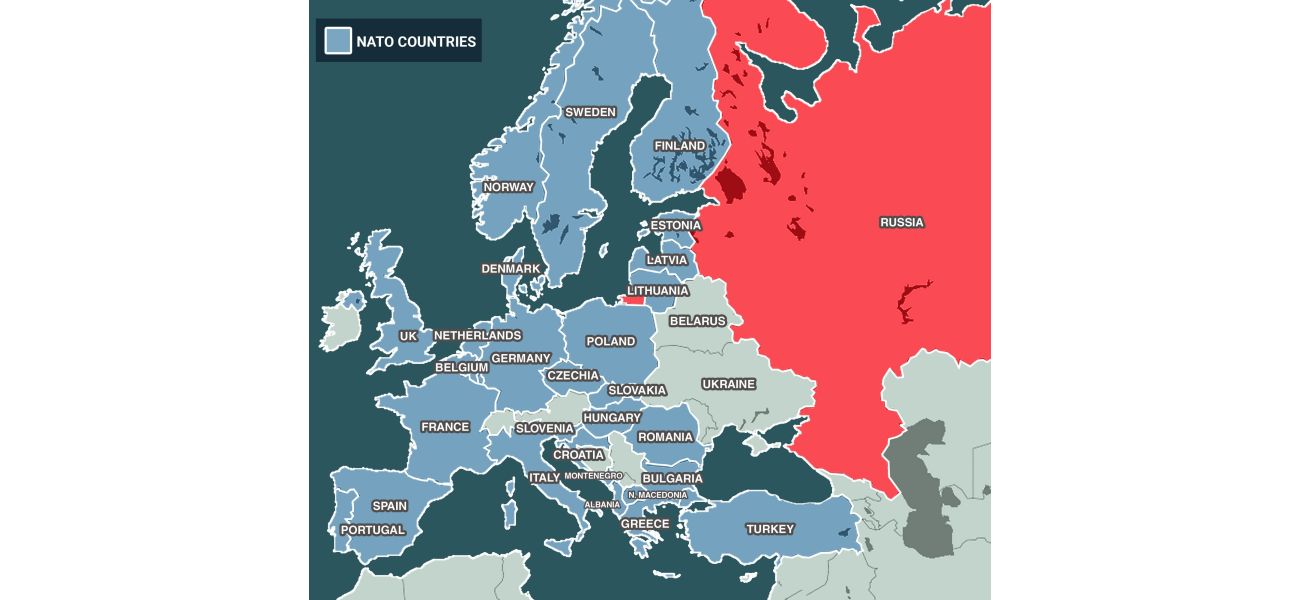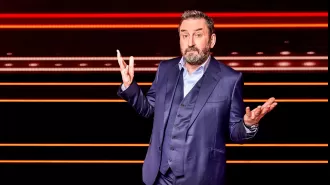Zelensky cautions that Putin may attack Nato within months - how do their military strengths compare?
February 16th 2025.

In the upcoming Munich Security Conference, President Volodymyr Zelensky has raised concerns about Russian aggression towards NATO. Despite failing to occupy all of Ukraine, Putin is reportedly preparing to wage war on the Western military alliance. According to intelligence shared by Ukraine, the Russian army is currently conducting military exercises in Belarus, leading to fears of a potential invasion in Europe as early as this summer.
Zelensky emphasized the unpredictable nature of Putin's actions, stating, "knowing that he did not succeed in occupying us, we do not know where he will go." He expressed concerns that Poland and Lithuania could be potential targets, as it is believed that Putin will not hesitate to wage war against NATO. This heightened tension between Russia and NATO has not been seen since the Cold War, as European allies have warned of Russia's threat to countries beyond Ukraine.
In theory, this situation highlights the relevance of the Western military alliance in the face of such a threat. However, behind closed doors, there are growing fears that US President Donald Trump may abandon NATO as a security guarantor. At the Munich conference, Zelensky stressed the importance of NATO to US Vice President JD Vance. He also predicted that without the threat of US military retaliation, Russia would begin occupying parts of Europe, particularly the former Soviet nations.
Zelensky further explained, "They will begin from those countries...small countries who have been in the Soviet Union." He expressed concern that Europe may not have the capability or willingness to respond, as each country would be left to defend itself. This is a significant concern as NATO is already testing its ability to rapidly deploy across Eastern Europe without direct US assistance, as the US shifts its approach towards European defense.
Despite this potential loss of US support, NATO's military strength still surpasses that of Russia due to the combined capabilities of its 31 member states. However, this margin is much smaller if the US is removed from the equation. Currently, 23 of the 32 member nations are meeting the agreed-upon target of spending at least 2% of their GDP on defense. However, the US is pushing for this figure to be raised to 5%, causing pushback from European allies who argue that the White House's portrayal of a dependent Europe does not align with the data.
Despite these tensions, European allies have rallied to support Ukraine since the start of the war. The US alone has provided over $66 billion in weapons and military aid, with European and other allies sending an additional $60 billion. In her remarks at the conference, EU Commission President Ursula von der Leyen highlighted the actions taken by the EU to weaken Russia's economy and reduce reliance on Russian gas. She also stated that more actions are being considered in response to the ongoing conflict.
Zelensky emphasized the unpredictable nature of Putin's actions, stating, "knowing that he did not succeed in occupying us, we do not know where he will go." He expressed concerns that Poland and Lithuania could be potential targets, as it is believed that Putin will not hesitate to wage war against NATO. This heightened tension between Russia and NATO has not been seen since the Cold War, as European allies have warned of Russia's threat to countries beyond Ukraine.
In theory, this situation highlights the relevance of the Western military alliance in the face of such a threat. However, behind closed doors, there are growing fears that US President Donald Trump may abandon NATO as a security guarantor. At the Munich conference, Zelensky stressed the importance of NATO to US Vice President JD Vance. He also predicted that without the threat of US military retaliation, Russia would begin occupying parts of Europe, particularly the former Soviet nations.
Zelensky further explained, "They will begin from those countries...small countries who have been in the Soviet Union." He expressed concern that Europe may not have the capability or willingness to respond, as each country would be left to defend itself. This is a significant concern as NATO is already testing its ability to rapidly deploy across Eastern Europe without direct US assistance, as the US shifts its approach towards European defense.
Despite this potential loss of US support, NATO's military strength still surpasses that of Russia due to the combined capabilities of its 31 member states. However, this margin is much smaller if the US is removed from the equation. Currently, 23 of the 32 member nations are meeting the agreed-upon target of spending at least 2% of their GDP on defense. However, the US is pushing for this figure to be raised to 5%, causing pushback from European allies who argue that the White House's portrayal of a dependent Europe does not align with the data.
Despite these tensions, European allies have rallied to support Ukraine since the start of the war. The US alone has provided over $66 billion in weapons and military aid, with European and other allies sending an additional $60 billion. In her remarks at the conference, EU Commission President Ursula von der Leyen highlighted the actions taken by the EU to weaken Russia's economy and reduce reliance on Russian gas. She also stated that more actions are being considered in response to the ongoing conflict.
[This article has been trending online recently and has been generated with AI. Your feed is customized.]
[Generative AI is experimental.]
0
0
Submit Comment





